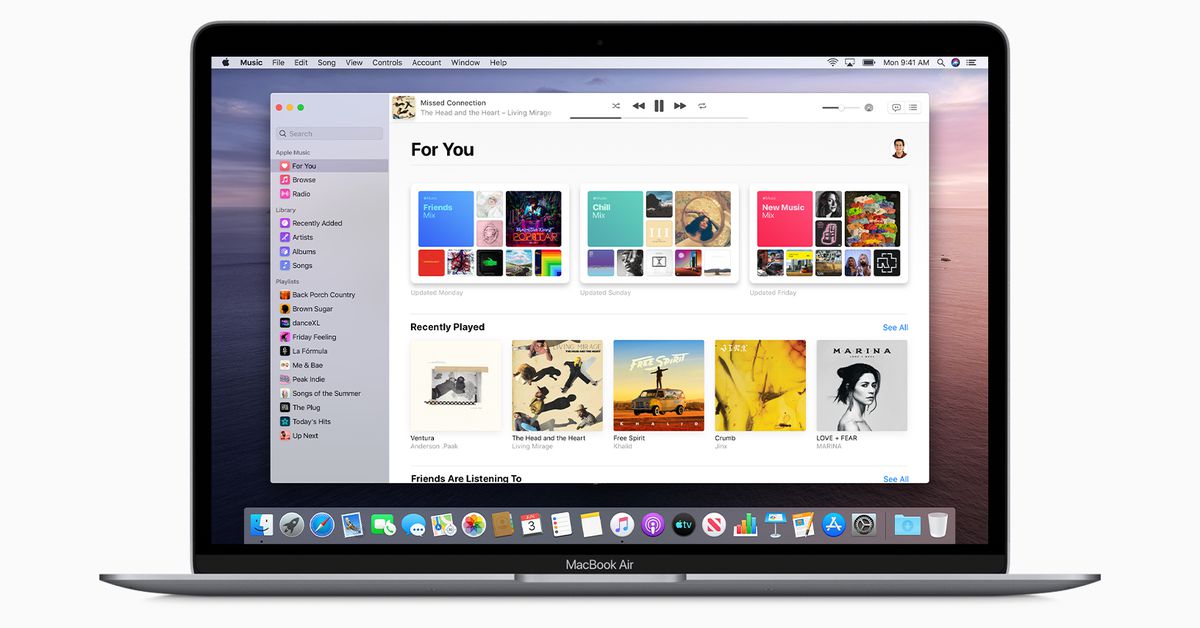Apple lawsuit over ‘buy’ and ‘rent’ labels for digital content can continue, rules federal judge
Source: The Verge added 23rd Apr 2021A federal judge has rejected a motion by Apple to dismiss a putative class action lawsuit over the company’s use of the labels “buy” and “rent” when selling digital content. As first covered by The Hollywood Reporter, the suit can now continue, though could yet be settled before ever reaching trial.
The lead plaintiff in the case, David Andino, argues that Apple is misleading consumers when it tells them it can “buy” digital versions of albums, TV shows, and films from its stores. Why? Because the iPhone-maker retains the power to terminate customers’ access to this content whenever it likes. This can happen, for example, when the company loses distribution rights to content that users haven’t secured by downloading to their device.
“Just like Best Buy cannot come into a person’s home to repossess the movie DVD that such person purchased from it, defendant should not be able to remove, or permit the removal by others of, digital content from its customers,” says Andino’s lawsuit. “Though some consumers may get lucky and never lose access to any of their paid for media, others may one day find that their digital content is now gone forever.”
Apple attempted to have the case dismissed, but a ruling this week by US District Court Judge John Mendez shows that the company’s arguments weren’t entirely convincing.
“Apple contends that ‘[n]o reasonable consumer would believe’ that purchased content would remain on the iTunes platform indefinitely,” wrote Mendez in an order filed with the Eastern District of California. “But in common usage, the term ‘buy’ means to acquire possession over something. It seems plausible, at least at the motion to dismiss stage, that reasonable consumers would expect their access couldn’t be revoked.”
To emphasize his point, Mendez pointed to the definition of the word “buy” in the Mirriam-Webster dictionary (meaning “to acquire possession, ownership, or rights to the use or services of by payment especially of money”) — a timeless move that is, apparently, as welcome in federal legal proceedings as in hastily-written wedding speeches.
Apple tried to argue that Andino’s “injury” was purely speculative, as he has not actually lost access to any content. But, as Mendez summarizes, the injury being presented is not the threat of losing future access, but the deception involved in Apple’s use of the word “buy.” This misleads consumers about the exact nature of ownership, meaning Andino “paid either too much for the product or spent money he would not have but for the misrepresentation.”
Apple did have some success, though, and one element of the lawsuit was dismissed: Andino’s claims to “unjust enrichment,” which would affect how any potential damages would be calculated. Mendez did, though, leave open the possibility of future “injunctive relief” — that is, material changes to how Apple sells content in future. All these questions, though, will have to be settled in future proceedings.
brands: ACTION Apple Best Element Especially First Forever iPhone It LUCKY One WAS media: 'The Verge' keywords: Apple iPhone Payment TV
Related posts
Notice: Undefined variable: all_related in /var/www/vhosts/rondea.com/httpdocs/wp-content/themes/rondea-2-0/single-article.php on line 88
Notice: Undefined variable: all_related in /var/www/vhosts/rondea.com/httpdocs/wp-content/themes/rondea-2-0/single-article.php on line 88
Related Products
Notice: Undefined variable: all_related in /var/www/vhosts/rondea.com/httpdocs/wp-content/themes/rondea-2-0/single-article.php on line 91
Warning: Invalid argument supplied for foreach() in /var/www/vhosts/rondea.com/httpdocs/wp-content/themes/rondea-2-0/single-article.php on line 91
